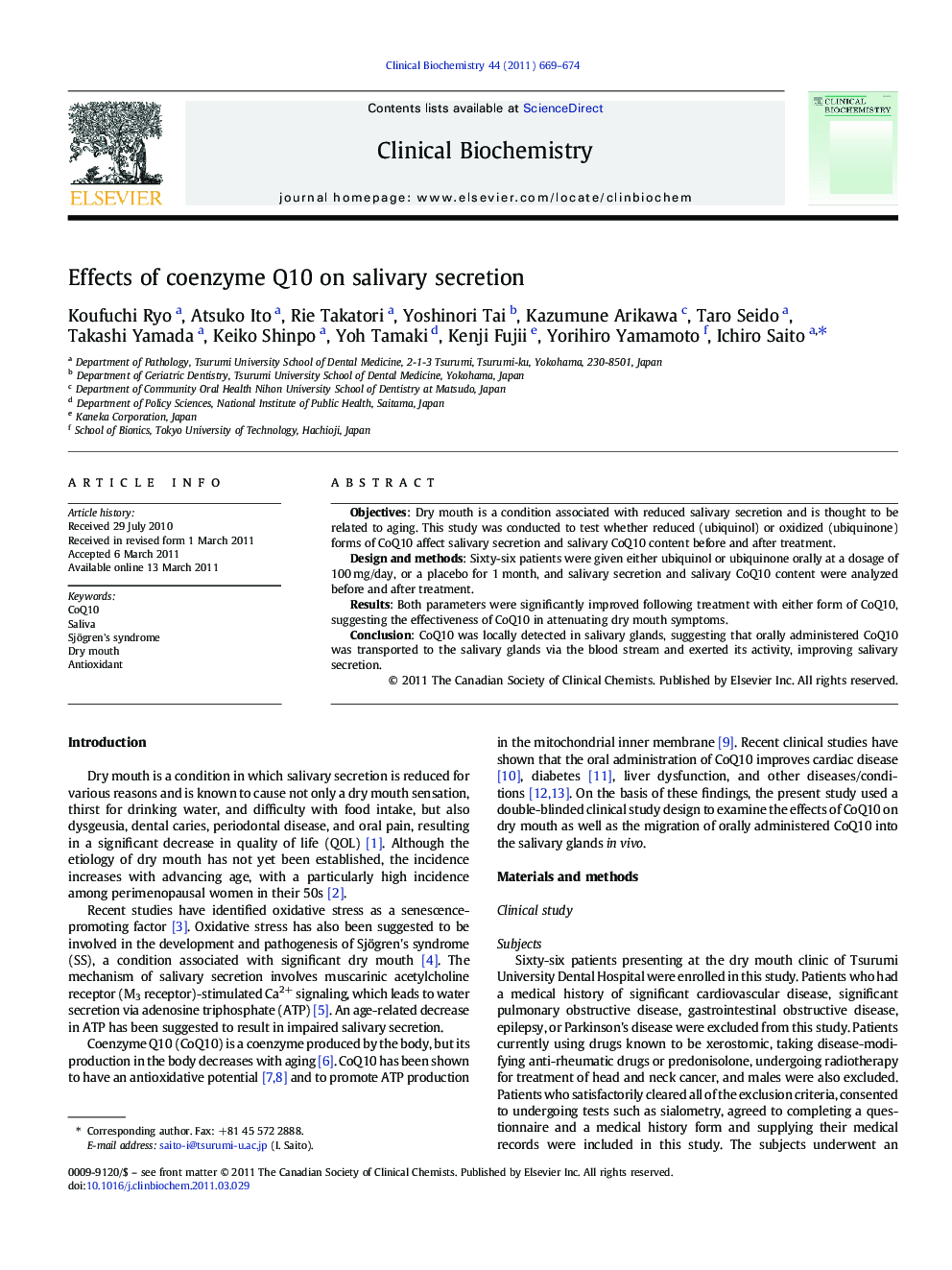| Article ID | Journal | Published Year | Pages | File Type |
|---|---|---|---|---|
| 1969018 | Clinical Biochemistry | 2011 | 6 Pages |
ObjectivesDry mouth is a condition associated with reduced salivary secretion and is thought to be related to aging. This study was conducted to test whether reduced (ubiquinol) or oxidized (ubiquinone) forms of CoQ10 affect salivary secretion and salivary CoQ10 content before and after treatment.Design and methodsSixty-six patients were given either ubiquinol or ubiquinone orally at a dosage of 100 mg/day, or a placebo for 1 month, and salivary secretion and salivary CoQ10 content were analyzed before and after treatment.ResultsBoth parameters were significantly improved following treatment with either form of CoQ10, suggesting the effectiveness of CoQ10 in attenuating dry mouth symptoms.ConclusionCoQ10 was locally detected in salivary glands, suggesting that orally administered CoQ10 was transported to the salivary glands via the blood stream and exerted its activity, improving salivary secretion.
